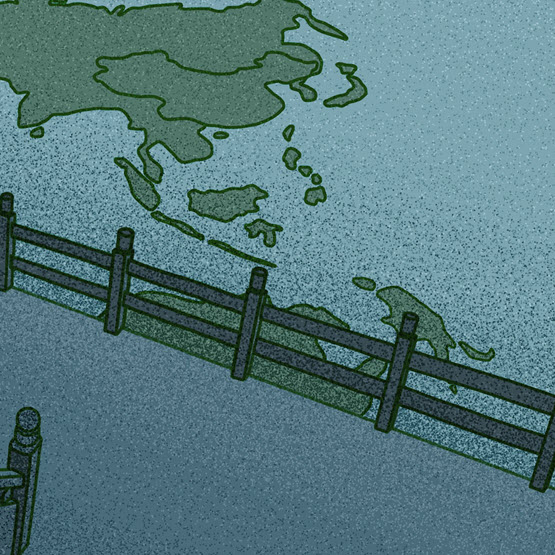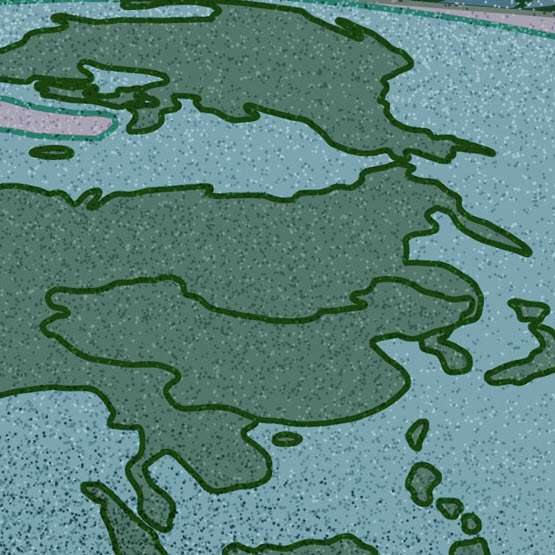Territorialization and the South China Sea

In this video, Bec Strating, Director of La Trobe Asia, examines China’s territorialization of the South China Sea, both as a defensive response against the perception of encirclement and as a way to extend its control and authority over maritime areas. She describes the four main strategies that China is pursuing in order to achieve […]
How Chinese Strategists View, Understand, and Contend with Russia’s Strategic Space

On September 3, 2019, at the Central Party School of the General Secretary of the Chinese Communist Party (CCP), Xi Jinping gave an important speech on “struggle,” where he referred to recent Chinese history: under Mao Zedong Chinese people stood up, under Deng Xiaoping and his predecessors Chinese people became rich, and under Xi Jinping […]
Brief: Mapping China’s Strategic Space

The global scope of China’s geostrategic ambitions has become more obvious since Xi Jinping’s accession to power. However, expansionist inclinations first became evident in national security and military circles as early as the mid-1980s. Since that period, Chinese strategic thinkers have been mulling over the dimensions of an enlarged space, deemed necessary to ensure China’s […]
Conclusion: A New Map?
This is chapter 5 of the report “Mapping China’s Strategic Space.” To read the full report, download the PDF. After examining a 40-year discussion involving a multitude of voices, as this report has endeavored to do, it appears with greater clarity that the significance of “strategic space” rests not so much in revealing Beijing’s […]
“Positioning” China: Power and Identity
This is chapter 3 of the report “Mapping China’s Strategic Space.” To read the full report, download the PDF. Rather than being determined by geography, a state’s geostrategy is mainly influenced by political factors. Political forces use geography to explain why and how the state thinks of directing resources, and how it exercises power. […]
The Return of Geopolitics
This is chapter 2 of the report “Mapping China’s Strategic Space.” To read the full report, download the PDF. There is an instinctive—albeit not deterministic—connection between space (in the sense of either territory or geography) and power, and numerous geographers, historians, political scientists, and philosophers have over the years attempted to uncover the laws […]
The Logic and Grammar of Expansion

This is chapter 4 of the report “Mapping China’s Strategic Space.” To read the full report, download the PDF. The need for China to expand its “strategic space” emerged as a concept out of Chinese military circles in the mid-1980s as they attempted to sort out the strategic implications of the new paradigm devised […]
Strategic Space

This is chapter 1 of the report “Mapping China’s Strategic Space.” To read the full report, download the PDF. Before mapping what constitutes the strategic space of the People’s Republic of China (PRC), we must begin with defining what the concept entails. Broadly speaking, it can be described as the imagined space beyond China’s […]
Introduction: Mapping China’s Strategic Space

This is the introduction to the report “Mapping China’s Strategic Space.” To read the full report, download the PDF. In September 1939, merely two weeks after Germany’s invasion of Poland, a group of leaders from the Council on Foreign Relations (CFR) met with Assistant Secretary of State George Messersmith. The State Department’s policy planning […]
China’s View of Its Economic Sphere of Influence, Economic Security, and Trading Networks

The external economic strategy of the People’s Republic of China (PRC) is multilayered and asymmetrical in what the PRC demands from other countries and what it seeks for itself. On one level, China depends on the open, rules-based global economic system embodied in the World Trade Organization (WTO)—in which member countries are required to keep […]